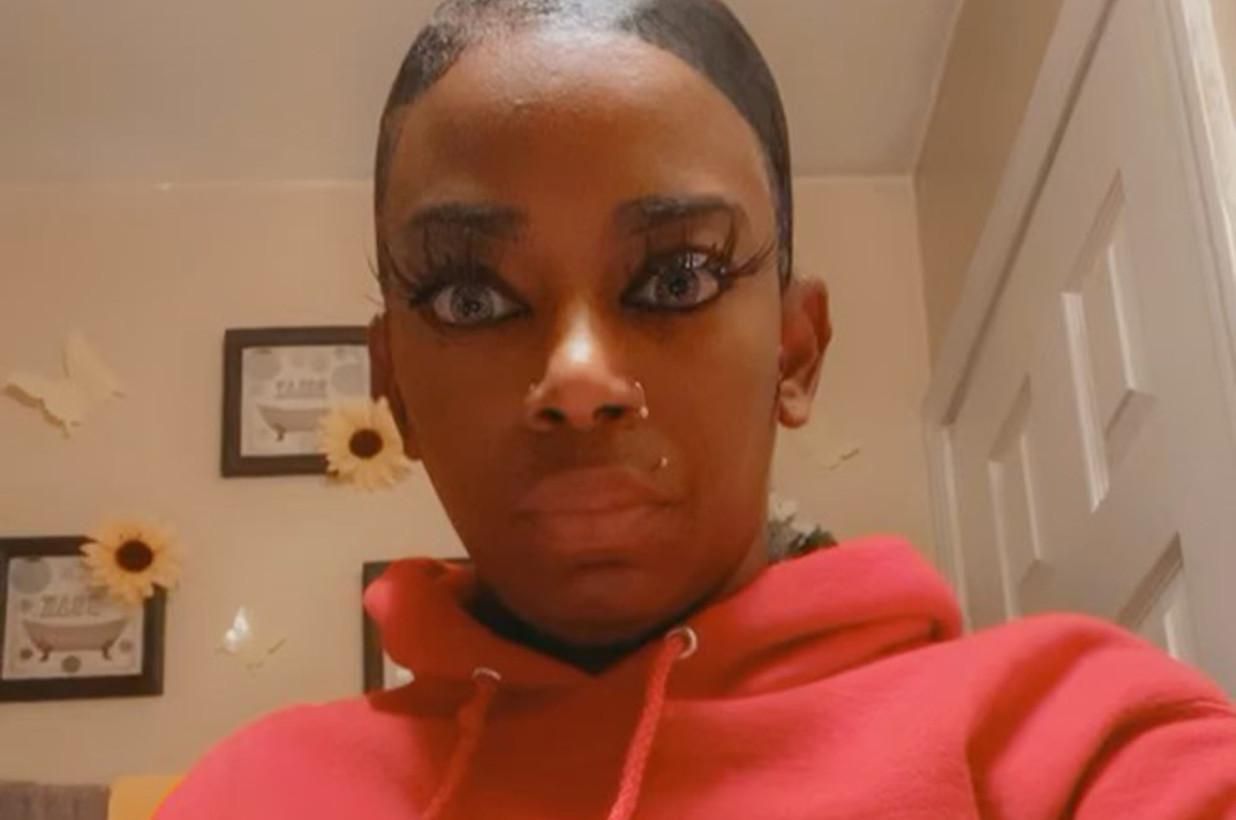We need to talk about why 'The Gorilla Glue Girl' did what she did
Courtesy of Tessica Brown's Instagram
For the past few days, I've been following a particular story that has been trending —the case of #gorillagluegirl. If you are confused as to why Gorilla Glue is trending, I must first mention that it's not solely for its superior adhesive properties.
Louisiana native Tessica Brown, who runs the Dazzling Divaz dance team, and is the owner of Tessica's Little Angels daycare, posted a TikTok video earlier this month and shared it on Instagram. Brown discussed how she ran out of her usual hair spray gel, so she used Gorilla Glue adhesive spray. She ended up asking for advice on the app about how to remove the Gorilla Glue from her hair after it was on her hair for a whole month.
She tried suggestions from followers to use tea tree oil, olive oil, and a culmination of other oils, but it was to no avail.
"I washed my hair about 15 times and it didn't move," Brown said. She then went on to tell her followers "don't ever, ever use this on your hair," while holding up the spray can.
I'm sure we've all been in a situation where sometimes don't have the time to run to the store to grab something that you may need. So, you end up having to work with what you have, as did Brown. Unfortunately, as she used the Gorilla Glue adhesive spray to give her the finishing touches needed for a "sleeker" look because it's what she had on hand, she didn't realize that the glue would really be difficult to come out.
Many people have become invested in her case negatively by making memes and mocking her, saying that she's an "opportunist" and a "liar" which is downright mean to say when Brown has acknowledged that " it was a bad idea."
But there have also been amazing people who have said some encouraging things and are genuinely concerned about her wellbeing, such as Chicago-based rapper, Chance The Rapper saying, "...When I watched the video the second time it was hard to laugh cause I could tell shorty genuinely didn't know she had put one of the worlds most powerful adhesives in her sh*t. I hope she recovers well."
Even Gorilla Glue wrote a statement on Twitter expressing their happiness for Brown seeking medical attention. "We are glad to see in her recent video that Miss Brown has received medical treatment from her local medical facility and wish her the best," said Gorilla Glue on Twitter. Despite this, Brown is considering taking legal action against the company.
However, the sentiments that have resonated with me came fromThe View's Sunny Hostin.
"So many are being dismissive of #gorillaglue," said Hostin. "Given the history of how black women are targeted and still battle the pervasive belief that our natural hair is unprofessional, unkempt, or in some way "a statement" pls show her some grace and understanding."
From the beginning of time, Black people, especially that of Black women like myself, are sometimes the subject of ridicule due to appearances even if they are more than capable of succeeding at something. Yes, laws have been put in place to prevent hair discrimination in the workplace, but it's still a very real and unfortunate occurrence.
There have been times in the past where I felt obligated to wear my hair in "sleek" ponytails as well just to be a step closer to what I thought was the right thing to do to "fit in" and look as "polished" as possible. I've even experienced people telling me that my hair looks "much better" than my curls and coils hanging in my face. The audacity of it all is something that I can't begin to fathom, but I say all this say to get to this point— have more compassion.
This was an honest mistake. Brown had the courage to come online and express what was going on with her, seeking help for something that she needed advice on. She shouldn't have been bashed for being candid about something that could be seen as embarrassing.
On a brighter note, Brown has raised over $17,000 in a GoFundMe and was able to see Beverly Hills surgeon, Dr. Michael K. Obeng who has offered to de-glue her hair for free and succeeded. Moments like this warm my heart because it shows that there are good people in the world who aren't quick to judge others for being human.
Updated: 9:04 am EST on 02/13/21
Have you got something to say? Want to see your writing here? Submit a post to Conversations today.
- 'Gorilla Glue Girl' who accidentally stuck her hair to her head ends ... ›
- Fundraiser by Tessica Brown : Tessica Brown ›
- Gorilla Glue Girl, Tessica Brown, shares terrible hair saga on TikTok ... ›
- Gorilla Glue says it's 'very sorry to hear about' the Louisiana woman ... ›
- Full update Gorilla glue girl (Official) - YouTube ›
- Gorilla Glue as Hair Spray? 'Bad, Bad, Bad Idea' - The New York ... ›
- Gorilla Glue Girl: Cincinnati company offers advice ›
- Gorilla Glue girl Tessica Brown raises over $13K in a day on ... ›
